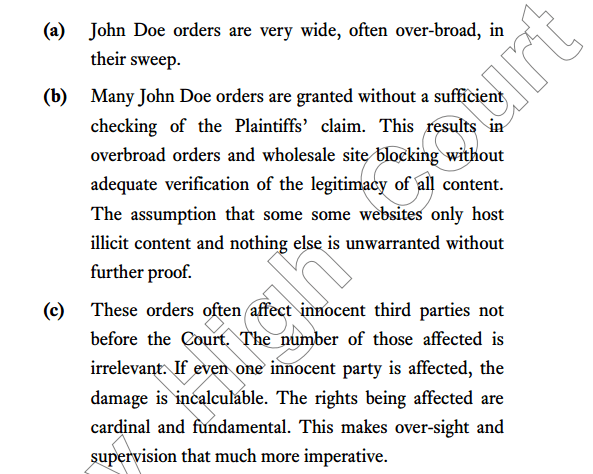 Last month many Indian Internet users noticed that their favorite torrent websites were blocked, displaying a rather ominous message.
Last month many Indian Internet users noticed that their favorite torrent websites were blocked, displaying a rather ominous message.
Those who tried to access The Pirate Bay, ExtraTorrent and hundreds of other sites were informed that they could face up to three years in prison.
Apparently, simply viewing copyrighted content would already be enough to send someone to jail. This was quite an alarming prospect, to say the least.
“Viewing, downloading, exhibiting or duplicating an illicit copy of the contents under this URL is punishable as an offence under the laws of India, […] which prescribe imprisonment for 3 years and also fine of up to Rs. 3,00,000,” it read.
The blocking message triggered a torrent of news articles, bringing the scaremongering to a new level. Some reporters went as far as claiming that downloading a .torrent file or viewing a copyrighted picture could already lead to trouble.
These reports also reached the Bombay High Court, which oversees the blocking case initiated by the makers of the movie Dishoom. In a recent order, Judge Patel clears up the confusion.
Simply accessing a website or viewing copyrighted content is not the problem, but offering it to others is.
“The offence is not in viewing, but in making a prejudicial distribution, a public exhibition or letting for sale or hire without appropriate permission copyright–protected material,” Judge Patel writes.
“These error pages appear to have confused the penal provisions regarding obscenity with penalties under the Copyright Act, 1957,” the order (pdf), courtesy of SpicyIP, adds.
Judge Patel ordered Internet provider Tata Communications, which manages the blocking message, to remove the viewing part. Instead, the notice now states that “infringing or abetting infringement of copyright-protected content” is an offence under Indian law.
This means that people who distribute copyrighted content via BitTorrent can still end up in jail, technically speaking. However, this has always been the case in India and the same is true in many other countries.
Aside from the blocking language, Judge Patel raised several other concerns which may turn out to be even more important for John Doe blocking orders in the long run. Picking up on a suggestion from Professor Basheer, he calls for the introduction of a neutral ombudsman to resolve blocking disputes.
Installing an ombudsman would resolve a lot of problems which so-called “John Doe” orders have raised in recent years.
“Many John Doe orders are granted without a sufficient checking of the Plaintiffs’ claim. This results in overbroad orders and wholesale site blocking without adequate verification of the legitimacy of all content,” Judge Patel writes.
“These orders often affect innocent third parties not before the Court. The number of those affected is irrelevant. If even one innocent party is affected, the damage is incalculable. The rights being affected are cardinal and fundamental,” he adds.

In addition, the Judge notes that the orders often stay in place for a long time without proper oversight and that subsequent blockade removals are slow, cumbersome and inefficient. He therefore urges ISPs and Bollywood to seriously consider the idea of an ombudsman.
The issues raised are important because the John Doe orders affect all national ISPs, which have a subscriber reach of many millions of people.
Amusingly, Judge Patel concludes his order my mentioning a claim from ISP Tata Communication, which suggests that the orders are somehow targeted at films that are expected to flop, in order to boost their revenues. However, this is something the court might possibly look into at a later date.
“In conclusion, I only note Mr. Tulzapurkar’s submission that these blocks and John Doe orders seem to be sought only for forthcoming or anticipated box office flops. Whether or not this is true, and whether or not it is a relevant consideration in law I leave for another day,” the order concludes.
That’s one to watch for sure.





